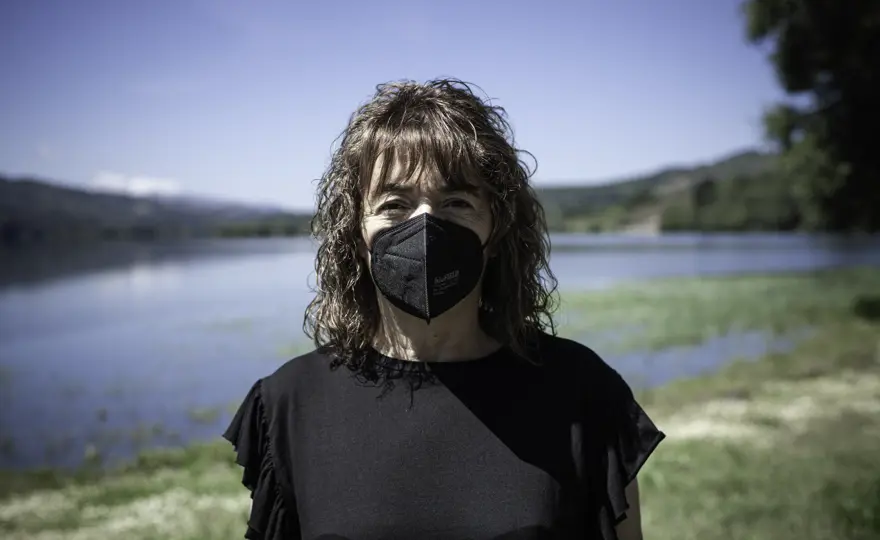ClientEarth Communications
12th February 2026


Authorities must protect citizens' fundamental rights against industrial livestock pollution – and should be held accountable if they failed to do so.
This is the historic judgement that could revolutionize how industrial livestock pollution is treated in court. The High Court of Justice of Galicia ruled on 11 July 2025 that Spanish authorities breached residents' fundamental rights by failing to address pollution caused by industrial pig farms.
The court ordered the Xunta de Galicia and the Miño-Sil River Basin Authority to immediately adopt all necessary measures to guarantee the end to the odours and environmental degradation of the As Conchas reservoir and its surroundings, restoring the full enjoyment of people's fundamental rights.
The local authorities appealed, but on 13 February 2026 the court decided it would not reopen the case. The judgment is thus final, and leaves no doubt: industrial livestock pollution is not just a regulatory or environmental issue, but a human rights violation.
This ruling could set a precedent for communities across Europe.
Residents of As Conchas, supported by ClientEarth, Friends of the Earth Spain, and consumer group CECU, filed the lawsuit after repeated appeals to local and national authorities were ignored. They argued that mismanagement of pollution from decades of intensive pig rearing has made life in their community “unfeasible” – and is putting their health at risk.
"Like many who live in As Conchas, I’m too afraid to drink the water from our own wells because of all this contamination. We are so concerned about the pollution that even the idea of walking near the reservoir has become unfeasible.
— Pablo Álvarez Veloso, president of the local neighbourhood association
However, rather than warn the community of the true extent of pollution in the area, the local authorities have claimed the water was in ‘good condition’. Every year, they say children can swim and play in the reservoir without a warning in sight of how toxic the water may be.
The residents have tried many times to raise these issues with local government directly – but they felt they weren't being listened to. So they took matters in their own hands – "we’re going to court to protect our community."
Local studies have recorded extremely high levels of nitrates in the As Conchas reservoir – at times reaching levels of up to 1,000x higher than typical levels. Nitrates are a well-known risk factor for numerous cancers, including thyroid, breast and ovarian cancer.
In addition to nitrates, researchers have found antibiotic-resistant bacteria in the reservoir – known to cause diseases that are extremely difficult, or in some cases impossible to treat. The World Health Organization (WHO) lists these superbugs among the top ten threats to humanity. The strong odour from intensive farms is also a public health concern. The complaint explains that it is caused by fine particles in the air, which can trigger respiratory issues and asthma, especially in vulnerable groups such as children and older adults.
Throughout the warmest months of the year, we’re too afraid to even open the windows to cool the house down - because that’s when the smell from the reservoir is at its very worst.
During the summer, the headaches I’ve had since 2012 only get worse and more frequent. I’ve gone to the doctor time and time again to figure out what’s causing it – and they can’t seem to figure it out. I think it’s because of this pollution.
— Mercedes Álvarez de León, local business owner and claimant
Despite the known risks, authorities have continued to grant permits for new industrial pig rearing in the region. According to the claimants, many of these approvals appear to be rubber-stamped with little regard for residents' well-being.
This happens despite clear obligations under:
The Spanish Constitution
The European Convention on Human Rights
National and EU environmental laws
Both national and European law require authorities to protect the health and well-being of citizens – and the court has now confirmed that failure to do so can constitute a violation of the right to life.
The lawsuit is the first time a court in Europe has ruled on the human rights impacts of intensive livestock operations on water sources.
This ruling is a historic victory for environmental justice. It confirms that governments have the legal duty to act against environmental degradation that threatens people's lives.
It also sends a strong message across Europe: livestock megafarms cannot continue unchecked, and affected communities have the right to demand protection, clean water, and accountability from their authorities. Lawyers say the case now paves the way for communities in similar "Sacrifice Zones" to bring replica suits.